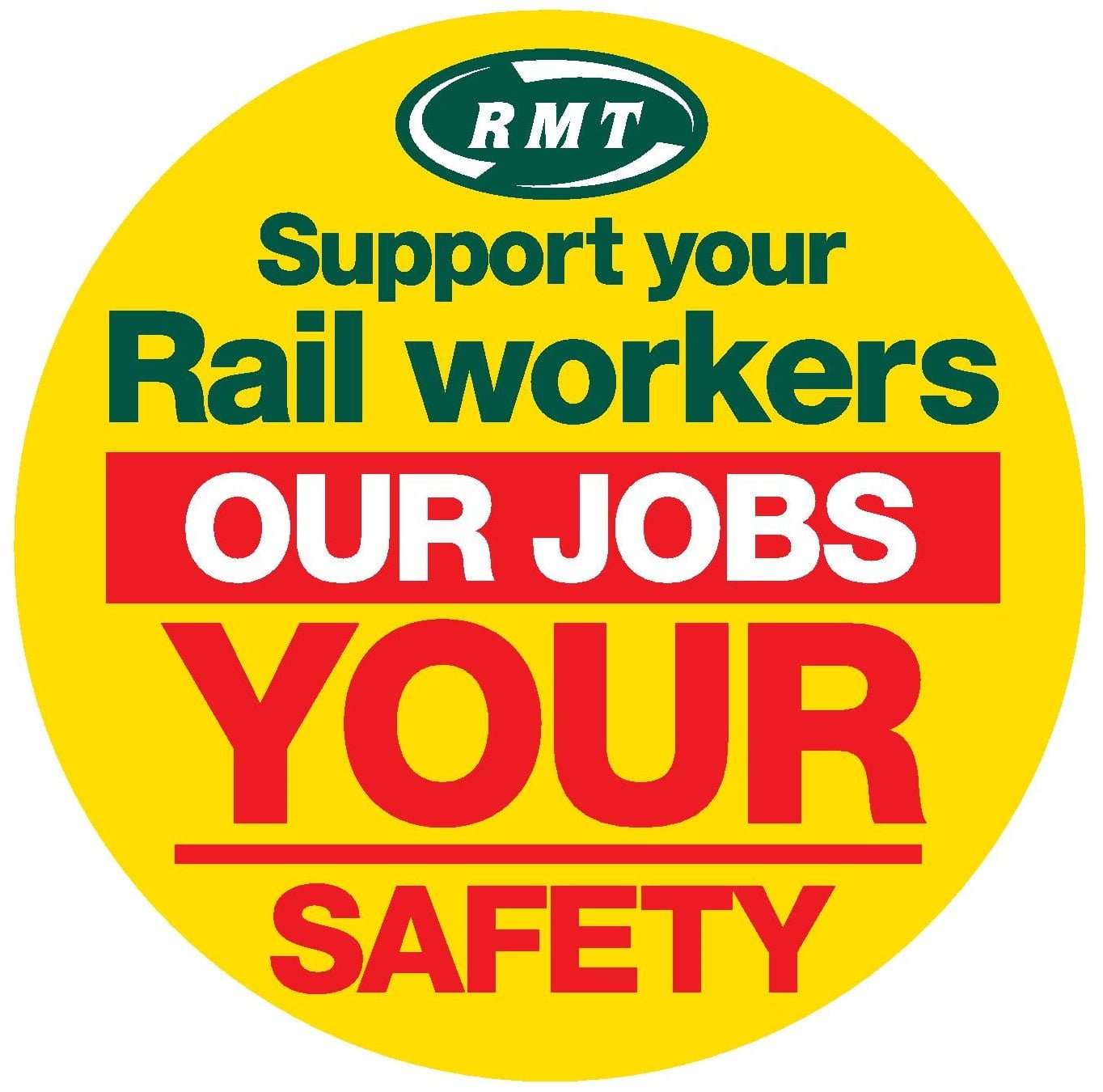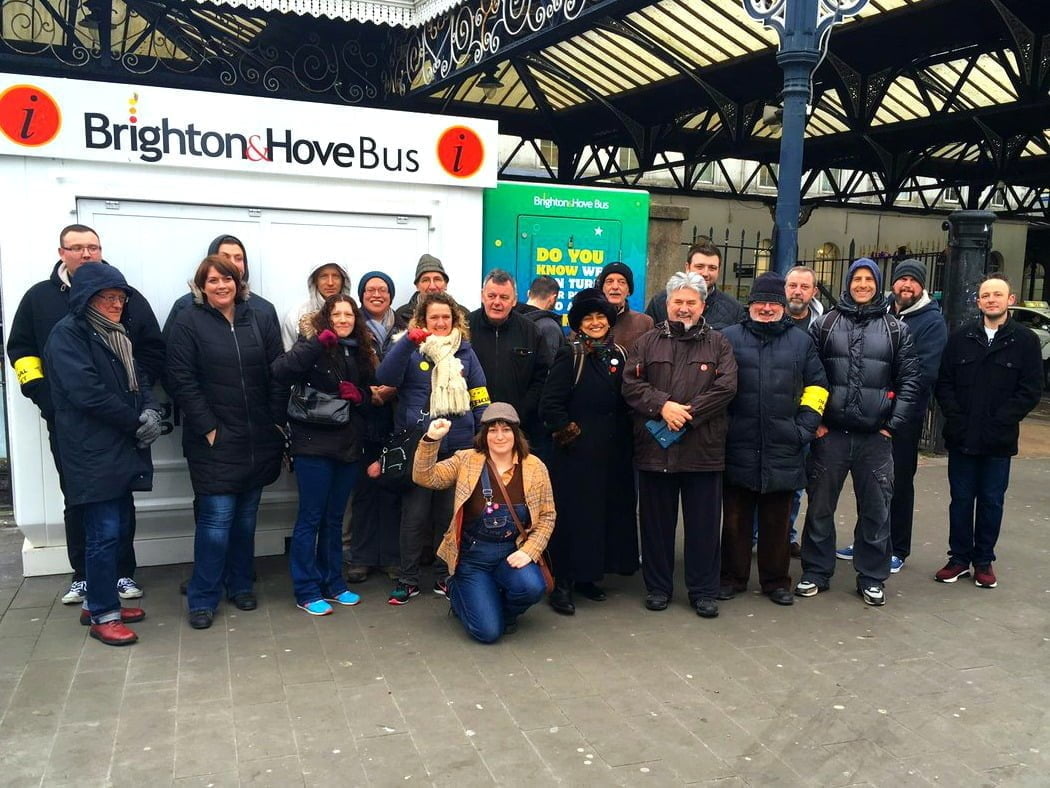Yesterday, on Wednesday 22nd February, RMT members on Southern rail continued their strike action against job cuts and attacks on health and safety. With ASLEF members now also rejecting a cooked up deal between the bosses and TUC leaders, we will likely see renewed joint action between RMT and ASLEF trade unionists in the coming weeks and months.
Yesterday, on Wednesday 22nd February, RMT members on Southern rail continued their strike action against job cuts and attacks on health and safety. Last week, ASLEF members voted against the sham deal that had been cooked up by TUC leaders – a decision that will hopefully mean renewed joint action in the coming weeks and months between RMT and ASLEF members. Only by remaining united can railway workers win their struggle against the Southern bosses and their Tory backers.
Comrades from the Sussex Marxist society visited the picket line at Brighton station yesterday. Workers seemed in good spirits, and were pleased that they had been able to convince eight drivers to not cross the picket and go into work.
We spoke to one union member, who insisted that the dispute is about safety, accessibility and security for passengers, emphasising in particular the fact that removing guards from trains would severely impact the ability of disabled passengers to access services (in breach of 2010 Equality Act).
Indeed, all the workers we spoke to maintained that the strike was being driven by a politically-motivated attempt by the Tory government to force a confrontation and create an opportunity to smash the unions.
Another RMT member on the picket line noted that comments had been made in February last year by Peter Wilkinson, the DfT franchising director (who “earns” a salary of £265,000 a year), about the need to “break” train drivers. Wilkinson had aggressively insisted that those who resisted government plans should “get the hell out of my industry.”
Given the political nature of these attacks on Southern workers, it is vital that all workers give their full support to the strike, as it will likely prove a key battle in a wider struggle in the coming period between the unions, on the one side, and the bosses and the Tory government, on the other.
As one female worker noted, the decision by Govia Thamelink Railway (the management company for Southern) to effectively rip up their contract with train staff demonstrates their total disregard for workers’ rights, setting a precedent for further attacks on terms and conditions in every workplace and every industry.
The general mood on the picket line was one of a determination to continue the struggle. The workers know the stakes, and they place no illusions in either the rail bosses or the Tory government, who primarily see this dispute as an opportunity to strike a blow against the labour movement, paving the way for further attacks on the working class in the future.
These attacks must be met by a militant campaign across the labour movement to defend trade union rights and to preserve the safety and dignity of both workers and passengers.
A victory in this dispute would be a shining example to workers in other sectors – such as the gig economy, the NHS, or education – who are fighting similar battles against austerity, cuts, and privatisation. Nevertheless, an one-off win will not halt the general attacks on workers’ rights and conditions. Capitalism is in a deep crisis, and the ruling class will continue to attempt to balance the cost of that crisis on the backs of ordinary working people.
The demand must be raised therefore, for the nationalisation of the railways under democratic workers’ control, as part of a socialist economic programme; to kick out the Tories, abolish the crises-ridden market system, and use society’s wealth to benefit all, rather than line the pockets of the rail executives and their ilk.






